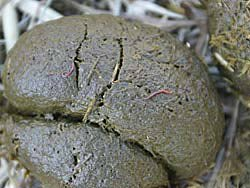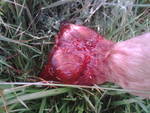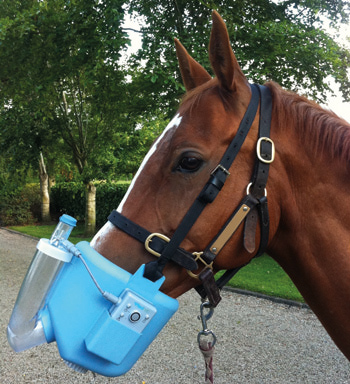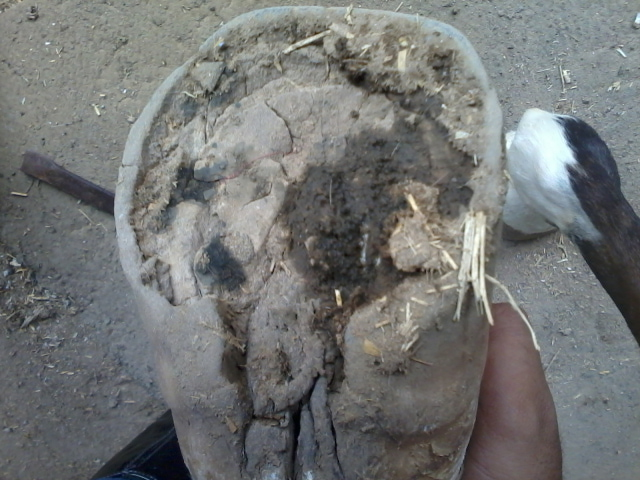QuestionMy 20 month old filly has a milky discharge from her nose, a slight cough but is NOT depressed, not off her feed and is drinking water and eating hay and grass and is acting normal. Does not appear to be running a fever. What treatment do I need to do for her?
AnswerDear Barbaralee:
please understand, my service is for advice/suggestions only. I really do not recommend that owners and non-veterinarians use my suggestions to institute treatments of their horses themselves. There is an incredible danger to that because I have never seen any of the horses for whom I give advice. Purulent (milky) nasal dischage and a cough is a significant problem and does not necessarily indicate one problem with any specificity. Sinus involvment is possible, a pneumonia or even a pleuropneumonia. I strongly recommend you have your horse evaluated by an equine veterinarian or at least a mixed animal vet. I cannot prescribe or recommend any medical therapy without ever having examined the horse or without having a client-patient relationship, thats the law. Your filly needs a complete physical exam, with a rebreathing examination to listen to the lungs, and an evaluation of the upper respiratory system. Contrary to what you may beleive, with a cough and a milky discharge, this problem may be well past just an upper respiratory infection (URI) and may now be a fulminant pneumonia. You may not see a fever because the fever may spike at odd times of the day. If this were a simple URI, that usually indicates a viral problem, common at this age. Since antibiotics are ineffecttive against viruses, I ususally have people watch for other problems, control the fevers with Banamine, isolate it from other susceptible horses and wait for the animal to get rid of the virus. However, as I said, this may well be past this point and there may now be a secondary bacterial infection in the lungs. Again, I strongly recommend veterinary evaluation and treatment. At this point, please do not treat this on your own- thats not in the best interest of your filly. With veterinary attention, you will be guided to the most effective and expedient resolution of this problem. This may very well not be a simple URI any longer. Good luck to you. Please feel free to contact me again if you have any further questions for which I might provide suggestions and insight.

 horse dropping - worms
Question
horse droppings
hello Lyn, i have attac
horse dropping - worms
Question
horse droppings
hello Lyn, i have attac
 Front leg injury
QuestionQUESTION: Hello, I do understand you are not a
Front leg injury
QuestionQUESTION: Hello, I do understand you are not a
 bleeding hooves - Rick Gore Horsemanship
Question
hooves
hi rick! I have attached a photo so you
bleeding hooves - Rick Gore Horsemanship
Question
hooves
hi rick! I have attached a photo so you
 remedy for caugh and cold
Question
nebulizer
hello maam. what is the remed
remedy for caugh and cold
Question
nebulizer
hello maam. what is the remed
 thrush on hoof
Question
thrush
hello. hope you can answer this
thrush on hoof
Question
thrush
hello. hope you can answer this